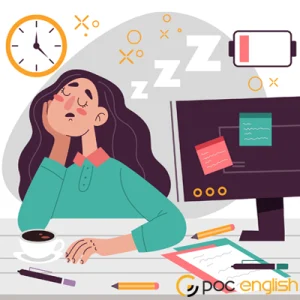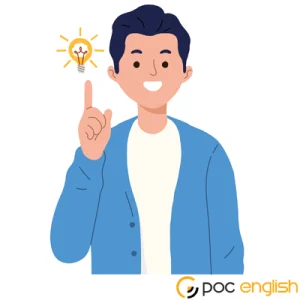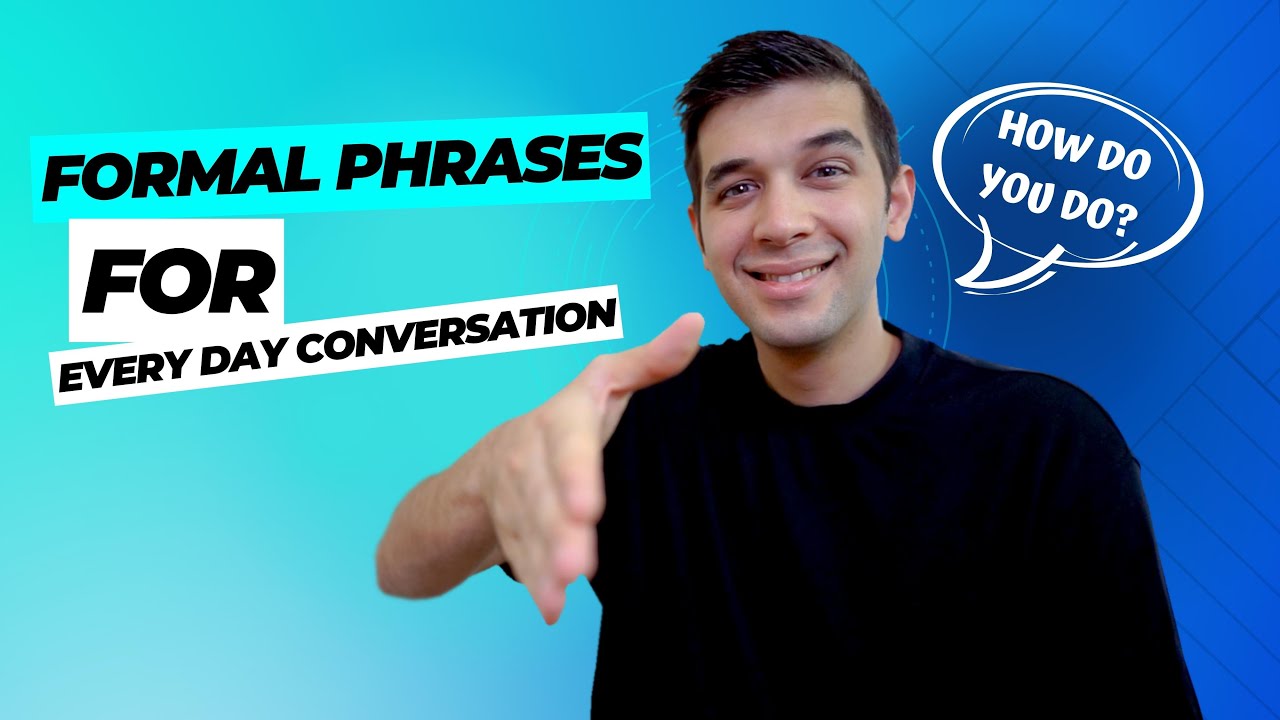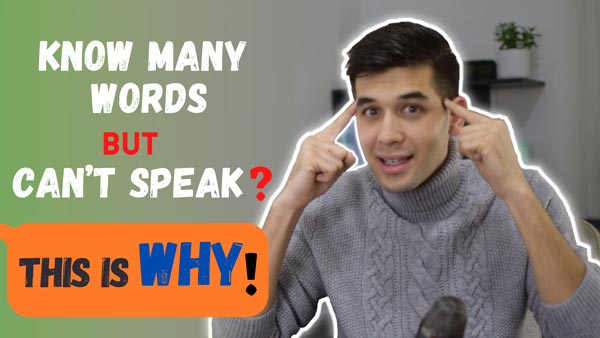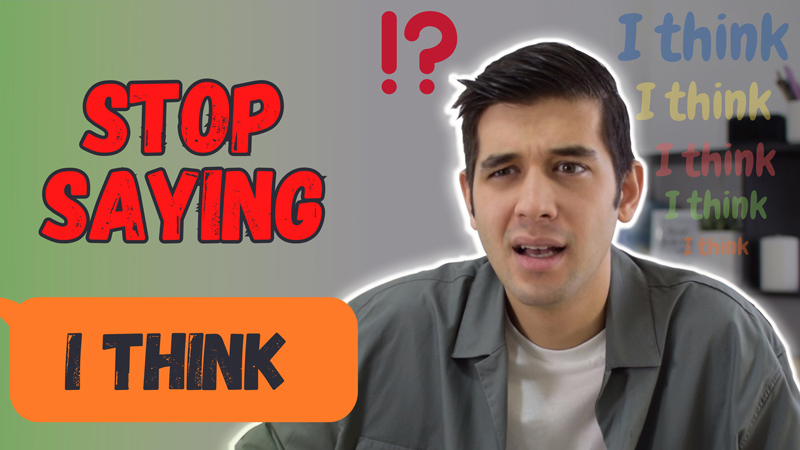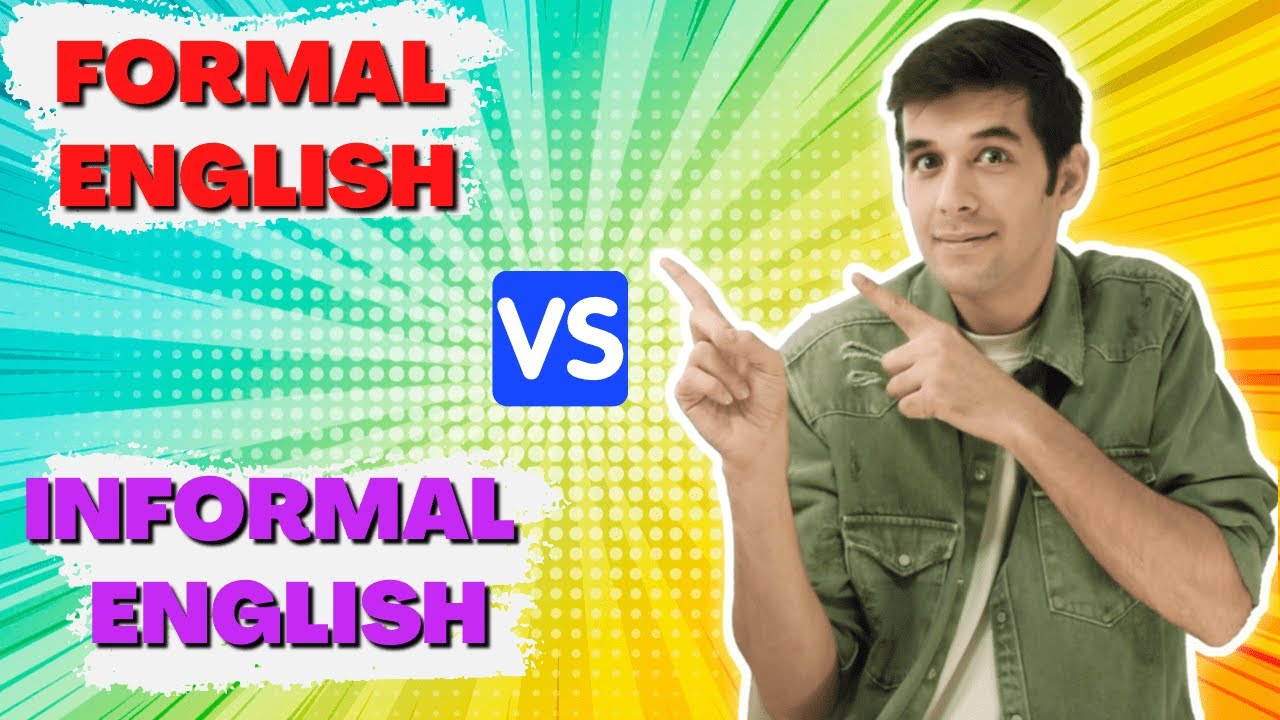Boring words? What do we mean by saying a word is boring? If you want to level up your speaking and writing skills, you have to learn about the alternatives for some simple words. Stay with us in this article to learn about these synonyms!
“Jack is a smart person. He lives in a big house but his neighbor is really bad.”
This paragraph looks quite boring, right? Because we have used some common, boring words in it. Let’s change it a little.
“Jack is a knowledgeable person who lives in a gigantic house but his neighbor is sinister.”
It’s so much better right? That’s exactly the goal of this lesson. We are going to learn some cool alternatives to boring words. Let’s start!
1. Smart / Wise
Instead of wise or smart, you can use “bright”. “Bright” means smart and quick to learn. For example:
- They are bright children, always asking questions.
Another synonym for smart is “ingenious”. “Ingenious” means very clever and skillful.
- She proposed an ingenious solution to the problem.
A formal alternative to these boring words is “knowledgeable”.” knowledgeable means knowing a lot, and having a lot of knowledge.
- He is the only knowledgeable professor at our university.
Learn more: food vocabulary in English
2. Big / Enormous (of boring words)
What else can we say instead of these boring words? (please pay attention that there is nothing wrong with using “big”, “enormous”, or “smart”. But if you want to improve your vocabulary, you should start learning synonyms to every day’s words.)
one synonym would be “gigantic”. Gigantic means very big, very huge. For example:
- They bought a gigantic house in the suburbs.
Another alternative to “big” is “tremendous”. “Tremendous” means a very large and very big amount of something. it usually collocates with the word “amount”. For example:
- They are making a tremendous amount of noise.
One more alternative to these boring words is “immense” which means extremely large in size.
- He inherited an immense amount of money.
Learn more: Learn how to describe a movie in English
3. Little
Little means small and there are lots of words that we can use instead of it. words like “teeny”, “tiny” or “teeny tiny” which all mean very small.
- I only had a teeny tiny slice of cake.
Another alternative to this boring word is “minute”. “Minute” means extremely small. For example:
- You should read the contract in minute detail. (you have to pay attention to every small detail on the contract.)
“minuscule” also means very little or very small.
- I only had a minuscule piece of toast this morning. (I’m hungry right now because I had a small piece of toast this morning.)
Learn more: Learn about personality adjectives in English
4. I like….(of boring words)
It’s very boring to say “I like” all the time, isn’t it?
Instead of “like” you can say “admire” which means to respect and approve of something or somebody. For example:
- I admire him for his determination. (I respect him and I approve of him.)
“To appreciate something” is also another alternative to “I like” and it means to realize how good something is. For example:
- I always appreciate a funny joke when I’m out with my friends.
One alternative to “like” is “fancy”. “To fancy something means to want and like something. As an example:
- Do you fancy a cup of tea? (it’s a very British expression and you can also say: “Do you fancy a cuppa?” Or “fancy a cupps?”)
Learn more: English newspaper vocabulary
5. Bad
What else can we use instead of “bad” to make it less boring? We can use “despicable” which means very unpleasant and very bad.
- He is a despicable human being.
“Sinister” is also another synonym for “bad”. It means evil and very bad.
- She has dark sinister eyes that make you nervous when she looks at you!
You can also use “wicked” instead of “bad”. It means bad and morally wrong.
- He was a wicked ruler who murdered his own people.
Watch this short video
6. Kind
You can use “kind” to describe almost anyone who is friendly and well-mannered. Instead of kind we can use “generous”. Generous means somebody willing to help. For example:
- She has been very generous with me, helping me all the time!
*Tip: pay attention to the preposition: generous + with (somebody)
If you wanted to say the exact sentence with “kind” it would be like this:
- She’s been very kind to me!
*Tip: pay attention to the preposition: kind + to (somebody)
Another alternative to kind is “amiable”. Amiable means pleasant and friendly.
- He was an amiable and charming young man!
You can also use “affable” instead of “kind”. Affable means friendly and pleasant to talk to. For instance:
- She was quite affable at the meeting. (I enjoyed talking to her.)
So instead of “kind” you can use:
- Generous
- Amiable
- Affable
7. Rich
“Rich” is another simple adjective that is overused. Instead of that, you can use “wealthy”. For example:
- He is a wealthy man!
- His parents are wealthy!
You can also use “affluent” which is a formal word.
- I live in an affluent neighborhood. (I live in a neighborhood where all the neighbors are rich!
- The store has a base of affluent customers. (the store has many rich customers.)
You also use “affluent” to talk about a country with lots of resources.
- An affluent country.
- An affluent nation.
“Loaded” is an informal alternative to “rich”.
- The guy never spends a dime, but believe me, he is loaded!
So instead of “rich” we can say:
- Wealthy
- Affluent
- Loaded
Learn more: A complete introduction to the business English vocabulary
8. Funny
“Funny” means something or somebody that makes you laugh! Instead of that, you can use “hilarious” which means extremely funny. For example:
- He didn’t like the film at all but I thought it was hilarious!
You can also use “hysterical” which also means extremely funny. As an example:
- I just read a story, and it was hysterical!
Another alternative to “funny” is “humorous”.
- She wrote a humorous story about her teenage years.
Instead of “funny” we can use:
- Hilarious
- Hysterical
- Humorous
9. Important
“Important” is another overused adjective that means necessary and of great value. However, instead of that, we can use “chief” which means the most important or the main. For example:
- The chief problem we have is the spread of the disease. (our most important problem is the spread of the disease.)
You can also use “critical” instead of “important”. “critical” means of great importance or of high importance. As an example:
- The president’s support is critical to this project!
*Tip: pay attention to the preposition: critical + to (something)
“Crucial” is also another alternative to “important” and it obviously means important!
- Her work has been crucial to the project’s success!
*Tip: pay attention to the preposition: crucial + to
Instead of “important” we can use:
- Chief
- Critical
- Crucial (extremely important): “It’s crucial to follow instructions.”
- Significant (having meaning): “He made a significant contribution.”
- Essential (absolutely necessary): “Water is essential for life.
10. Fast
The tenth adjective that we are going to inspect in this lesson is “fast”. Instead of “fast” you can use “brisk” which means quick and energetic.
- I went for a brisk walk. (I walked quickly and energetically.)
- I took a brisk shower.
“Swift” means fast and smooth and is another alternative. For example:
- Thank you for your swift reply!
- The boy’s swift action saved his life!
And the third alternative which is formal is “accelerated”. “Accelerated” means faster than usual. For example:
- We need to start mobbing at an accelerated pace if we are going to hit the deadline.
- We have to work on this at an accelerated pace!
- We have to study at an accelerated pace!
- We need to watch this video at an accelerated pace!
Instead of “fast” we can use:
- Brisk
- Swift
- Accelerated
- quick (moving with speed): “He has a quick mind”
- speedy (done with speed): “She gave a speedy reply”
- rapid (very fast): “The river has a rapid current.”
Watch the following video and review some of the words mentioned and their alternatives!
11. Interesting
What else can you use instead of “interesting”? Well, if you are talking about something that makes you think, you can use “thought-provoking”. For example:
- It’s a thought-provoking book.
- It was a thought-provoking movie.
- Your opinion made me think. It was thought-provoking.
If it is something that holds your attention, (you cannot pay attention to anything else and you have to focus 100% on it.) you can use “gripping” or “captivating”. For example:
- I found the book so gripping that I couldn’t put it down.
- The film is a gripping account of the early days of the revolution.
- He found her captivating.
- Her voice was absolutely captivating.
If it’s something that’s generally good, you can use “fascinating” which means very interesting, or “appealing” which means pleasant. For example:
- The large salary made their offer even more appealing to him.
- I found the whole movie fascinating.
You can also use “charming” which means very good. as an example:
- She’s a charming person.
- What a charming name!
So, instead of “interesting” you can use:
- Thought-provoking
- Gripping
- Captivating
- Appealing
- Fascinating
- Charming
Learn more: Read the article about the formal and informal sentences in English
12. Beautiful
Let’s see what can we use instead of this very common adjective.
If you are talking about something which is unusual and so good that attracted your attention, you can use “striking” or “stunning”. “Stunning” means something which is very attractive and impressive. For example:
- The similarities between the two cases are striking.
- His performance was simply stunning.
You can also use “magnificent” which means very impressive and beautiful.
- The Taj Mahal is a magnificent building.
- She looked magnificent in her wedding dress.
If you are talking about something that you enjoy looking at it, you can use “eye-catching” or “spectacular”.
- An eye-catching advertisement.
- Messi scored a spectacular goal.
- The special effects were quite spectacular.
If you are describing someone and saying he / she is beautiful, there are different alternatives. If the person you are talking about is a woman or a girl, you can use “gorgeous” or “pretty”. For example:
- My girlfriend looks gorgeous / pretty!
If you are talking about a man or a boy, you can use “handsome”.
- He’s the most handsome man I’ve ever met.
However, for both sexes, you can use “attractive” and “good-looking”.
- I like John but I don’t find him attractive physically.
- She’s strikingly good-looking.
So, instead of beautiful you can use:
- Spectacular
- Eye-catching
- Striking
- Stunning
- Magnificent
- Gorgeous
- Pretty
- Handsome
- Attractive
- Good-looking
Learn more: Do you know how to communicate your health problems to others? Please read the article about sickness vocabulary on our website.
13. Fine
“Fine” means of high quality, very good, or very delicate. If you are talking about something that fulfills your expectations, you can use “satisfactory”(something that satisfies you).
- The work is satisfactory but not outstanding.
If you are talking about something that lovely and very beautiful, you can use “exquisite” which means extremely beautiful.
- Her wedding dress was absolutely exquisite.
If your topic is something that is good and nice in general and it’s appropriate, you can describe it with the word “decent”.
- I just want to get a decent job with decent pay.
- I need a decent night’s sleep.
If you are talking about something which deserves attention and respect, you can use “admirable” or “praiseworthy”. For example:
- Her dedication to her work was admirable.
- a praiseworthy achievement.
So, instead of “fine” you can use:
- Satisfactory
- Exquisite
- Decent
- Admirable
- Praiseworthy
14. Really (good)
“Really” is an adverb and it’s one of the most common ones! There are lots of other words that you can use instead of it:
- Genuinely (good)
- There are some genuinely funny moments in the film.
- She was genuinely sorry.
- Truly (good)
- Does she truly love him?
- He could never truly forgive her.
- Sincerely (good)
- I sincerely believe that this is the right decision.
If you have no doubt about what you are talking about and you are sure that it was very good, you can say “undoubtedly (good)”, “unquestionably (good)” or “certainly (good)”. for example:
- There is undoubtedly a great deal of truth in what he says.
- It was unquestionably a step in the right direction.
- I’m certainly never going there again.
- She was certainly attractive but you couldn’t call her gorgeous.
If you are talking about something that surprises you a little bit you can describe it with “remarkably (good)”. For example:
- Look at the performance of the cast, it’s remarkably good.
You can also use “incredibly (good)” which means to a great degree. as an example:
- It was all incredibly difficult.
- organizations doing incredibly important work.
Watch the following video!
Learn more: Read the article about physical appearance vocabulary
15. Slow
Example: “The traffic is slow.”
Alternatives:
- Leisurely (unhurried): “We took a leisurely walk.”
- Sluggish (slow-moving): “He felt sluggish after eating.”
- Unhurried (without haste): “She has an unhurried pace.”
16. Easy
Example: “The test was easy.”
Alternatives:
- Simple (not complicated): “The instructions were simple.”
- Effortless (requiring no effort): “She made it look effortless.”
- Straightforward (easy to understand): “It was a straightforward task.”
17. Difficult
Example: “The puzzle is difficult.”
Alternatives:
- Challenging (requiring effort): “The hike was challenging.”
- Tough (hard to do): “It’s a tough decision.”
- Tricky (difficult to handle): “The situation is tricky.”
18. Clean
Example: “The room is clean.”
Alternatives:
- Tidy (neat and orderly): “She keeps her desk tidy.”
- Spotless (perfectly clean): “The kitchen is spotless.”
- Pristine (in perfect condition): “The car is in pristine condition.”
19. Dirty
Example: “The shoes are dirty.”
Alternatives:
- Filthy (very dirty): “The room was filthy.”
- Muddy (covered in mud): “His boots were muddy.”
- Grimy (covered in grime): “The windows are grimy.”
20. Old
Example: “The house is old.”
Alternatives:
- Ancient (very old): “They visited ancient ruins.”
- Elderly (old, for people): “The elderly man smiled.”
- Vintage (from a past time, often high quality): “She bought a vintage dress.”
21. New
Example: “She has a new car.”
Alternatives:
- Recent (not long ago): “She read a recent article.”
- Modern (related to the present): “The building has a modern design.”
- Fresh (new and not spoiled): “They bought fresh vegetables.”
22. Tired
Example: “I feel tired.”
Alternatives:
- Exhausted (very tired): “After the marathon, he was exhausted.”
- Weary (tired in body or mind): “She felt weary after the long day.”
- Fatigued (extremely tired): “He was fatigued from the journey.”
Summary of the lesson: Boring words
✅ Instead of smart / wise → bright / ingenious / knowledgeable
✅ Instead of big / enormous → gigantic / tremendous / immense
✅ Instead of small → teeny / tiny / teeny tiny / minute / minuscule
✅ Instead of I like → I admire / I appreciate / I fancy
✅ Instead of bad → despicable / sinister / wicked
✅Instead of kind → generous / amiable / affable
✅Instead of rich → wealthy / affluent / loaded
✅Instead of funny → hilarious / hysterical / humorous
✅Instead of important → chief / critical / crucial / significant / essential
✅Instead of fast → brisk / swift / accelerated / quick / speedy / rapid
✅Instead of interesting → thought-provoking / gripping / captivating / appealing / fascinating / charming
✅Instead of beautiful → spectacular / eye-catching / striking / stunning / magnificent / magnificent / pretty / handsome / attractive / good-looking
✅Instead of fine → satisfactory / exquisite / decent / admirable / praiseworthy
✅Instead of really(good) → genuinely / truly / sincerely
✅Instead of slow → leisurely / sluggish / unhurried
✅Instead of easy → simple / effortless / straightforward
✅Instead of difficult → challenging / tough / tricky
✅Instead of clean → tidy / spotless / pristine
✅Instead of dirty → filthy / muddy / grimy
✅Instead of old → ancient / elderly / vintage
✅Instead of new → recent / modern / fresh
✅ Instead of tired → exhausted / weary / fatigued
As you understood from this lesson, there are many alternatives for simple words in English. Using these synonyms in your sentences shows your English level. If you want to learn more about these synonyms, we recommend you take the “POC English” online English course. In this course, we have covered the main skills that every English language learner needs to know about. Take this great course and improve your vocabulary, grammar, and speaking skills.
We also have a great course for IELTS students! If you are going to get a high score in the IELTS exam, our online IELTS course is perfect for you! Take this course and improve your English with the help of teacher Maddy.
